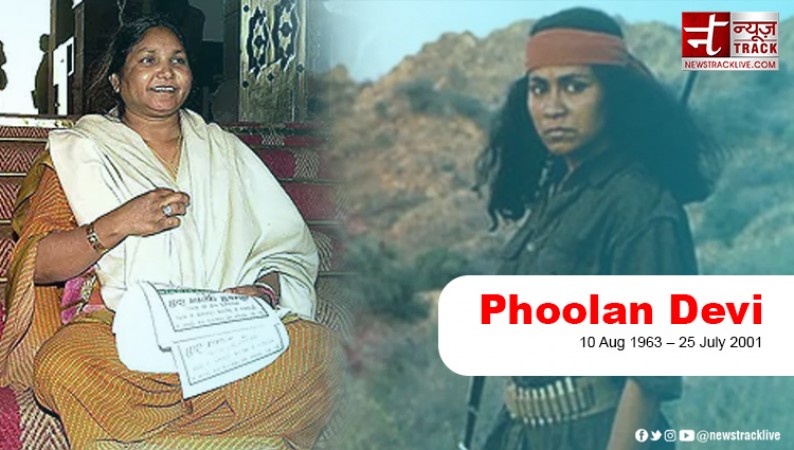
On the 60th commemoration of Phoolan Devi's birth, here is his history about the infamous lady dacoit turned politician.
On August 10, 1963, in the small village of Ghura ka Purwa in Uttar Pradesh, India, a girl named Phoolan Devi was born. Little did anyone know that she would go on to become one of India's most notorious and controversial figures - a bandit queen, a symbol of both fear and admiration, and eventually a politician.
At a young age, Phoolan Devi's life took a drastic turn when she joined a band of dacoits in 1979. Dacoits were notorious outlaws who operated in the rural areas of India, often resorting to violence and looting. As she became part of this group, Phoolan Devi gained a Robin Hood-like image, stealing from the rich and supposedly distributing the wealth among the poor. Her actions earned her the moniker "Bandit Queen."
Phoolan's story was that of a survivor, and she claimed to have been a victim of abuse and oppression herself. She said she sought revenge on those who had harmed her and fought against the injustices faced by women in her society. Her story resonated with many marginalized people, and she soon became a symbol of resistance for them.
However, it is essential to note that Phoolan Devi's life and actions were controversial. While some saw her as a hero fighting against social injustices, others viewed her as a dangerous criminal, responsible for multiple acts of violence. The lines between right and wrong blurred in the complex tapestry of her life.
In 1983, Phoolan Devi surrendered to the authorities and spent 11 years in prison. During her time behind bars, her story reached a broader audience through a book titled "Bandit Queen" and a subsequent biographical film of the same name. These works brought international attention to her life and experiences, sparking further debates about her actions and motivations.
After her release from prison, Phoolan Devi took a new path. She decided to enter the world of politics, a move that surprised many. In 1996, she became a member of the Indian Parliament, representing the Samajwadi Party. This transition from banditry to politics was met with mixed reactions. Some saw it as a transformation and an attempt to engage in lawful means to fight for social justice, while others criticized her entry into politics, questioning her suitability as a representative of the people.
Phoolan's political career had its ups and downs. She remained a controversial figure, facing criticism for her alleged involvement in criminal activities and her controversial decisions as a politician. Yet, she continued to be a symbol of resilience for many, especially among the oppressed and marginalized sections of society.
Tragically, Phoolan Devi's life was cut short on July 25, 2001, when she was assassinated outside her Delhi residence. Her death was a grim reminder of the complexities and challenges faced by individuals who strive to bring about change through unconventional means.
Phoolan Devi's life was a tale of courage, controversy, and transformation. Born into poverty and hardship, she embraced a life of banditry, becoming one of India's most feared outlaws. However, her actions were not without a purpose. She sought to fight against the injustices she endured and those faced by the marginalized in her society. After serving time in prison, she took the political path to continue her struggle, though it was met with both support and opposition. Her life and legacy remain a subject of fascination and debate, highlighting the complexities of human nature and the pursuit of justice in a society fraught with inequality and challenges.